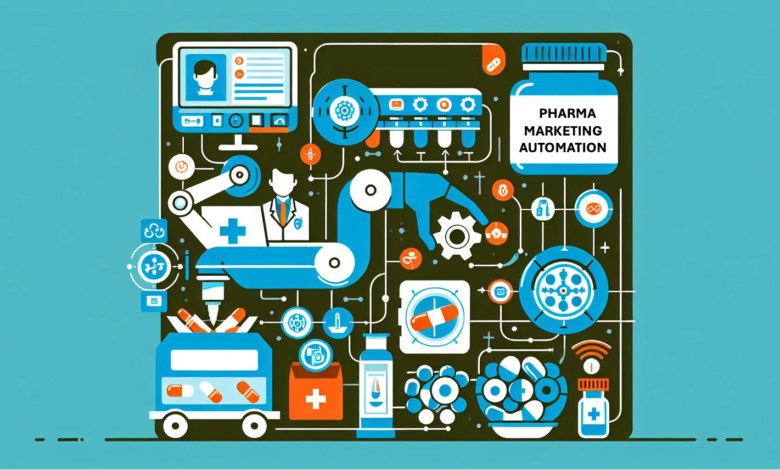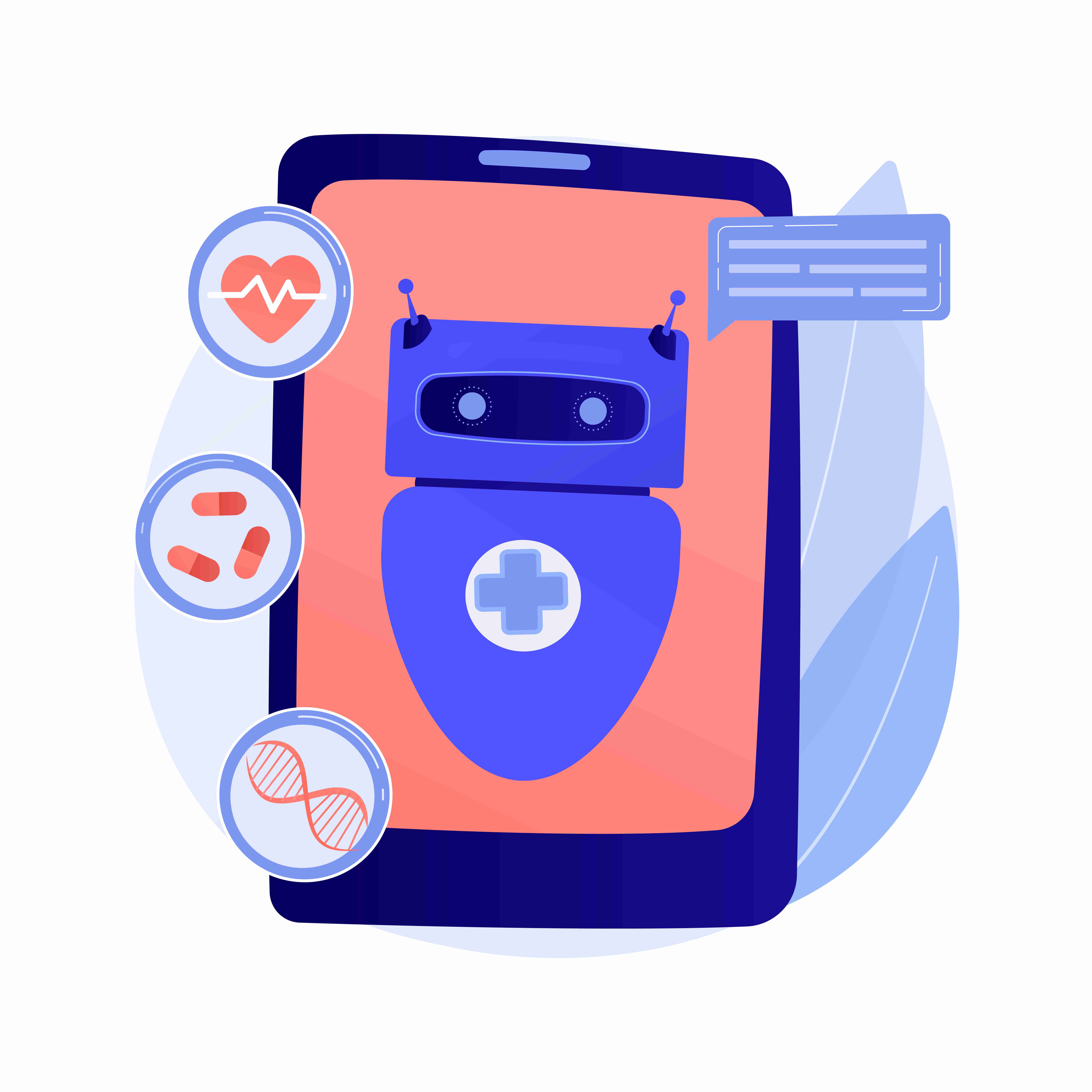Streamline and Succeed: The Benefits of Pharma Marketing Automation

Introduction to Marketing Automation in Pharma
The pharmaceutical industry is undergoing a significant transformation, leveraging advanced technologies to optimize marketing efforts. Marketing automation has become a pivotal component in this evolution, allowing companies to increase efficiency and better meet the needs of both healthcare professionals and patients.
The Evolution of Pharma Marketing
Pharma marketing has traditionally been a complex field, navigating stringent regulations while striving to effectively communicate the benefits of medical products and therapies. Early marketing efforts were largely manual and time-intensive, involving face-to-face interactions and physical materials.
With the advent of digital technology, the landscape began to shift. Pharma marketers adopted digital channels, such as email and social media, to reach their audience. However, the true leap forward came with the integration of marketing technology in pharmaceuticals, which includes the convergence of Martech and Adtech, programmatic advertising in pharma, and the utilization of AI in pharmaceutical marketing.
| Era | Marketing Approach |
|---|---|
| Traditional | Manual, In-person |
| Digital Transition | Email, Social Media |
| Martech Advancement | Automation, AI, Programmatic |
What is Pharma Marketing Automation?
Pharma marketing automation refers to the software platforms and technologies designed for pharmaceutical companies to more effectively market their products. These systems streamline various marketing tasks and workflows, from segmentation and targeting to campaign management and analysis.
The core of pharma marketing automation lies in its ability to process vast amounts of data, enabling data-driven marketing in pharmaceuticals to flourish. By automating repetitive tasks, marketers can focus on strategy and creative tasks that require a human touch. This technology supports compliance with industry regulations by ensuring that communications are consistent and accurate.
Marketing automation tools in pharma can include customer relationship management (CRM) systems, email marketing platforms, content management systems, and analytics tools that work in tandem to deliver a cohesive marketing strategy that is both efficient and effective. The goal is to deliver personalized messages to healthcare providers and patients at scale, while adhering to the unique compliance requirements of the pharmaceutical sector.
The Importance of Automation in Pharma
The pharmaceutical industry is embracing automation to overcome the unique challenges it faces. Marketing automation, particularly, has become a cornerstone in transforming the pharma landscape.
Streamlining Marketing Operations
Marketing operations within the pharmaceutical sector can be highly complex, involving numerous stakeholders and regulatory considerations. Automation streamlines these operations by simplifying and synchronizing tasks, which leads to better coordination and efficiency. For instance, campaign management tools automate the distribution of marketing materials across various channels, ensuring that messaging remains consistent and reaches the target audience at the optimal time.
Automation also plays a critical role in customer relationship management (CRM) by tracking interactions with healthcare professionals and patients, scheduling follow-ups, and managing leads. This level of organization is vital to maintain a clear and comprehensive view of marketing efforts.
| Marketing Operation | Traditional Method | Automated Solution |
|---|---|---|
| Campaign Management | Manual coordination across channels | Automated scheduling and posting |
| Lead Management | Individual follow-ups | Automated tracking and follow-up notifications |
| Customer Relationship | Manual logging of interactions | CRM systems with automated data capture |
By adopting marketing technology in pharmaceuticals, companies can enhance their marketing operations, leading to more dynamic and responsive marketing strategies.
Ensuring Compliance and Accuracy
Pharmaceutical marketing is subject to strict regulatory standards to ensure that all promotional materials are compliant with the law, provide accurate information, and protect patient data. Automation tools help to enforce these standards by including built-in compliance checks, minimizing the risk of human error that can lead to violations and potential fines.
For example, automated content management systems can flag non-compliant language or claims before materials are published. In addition, these systems can maintain a detailed change log, providing an audit trail that is crucial for regulatory reviews.
Automation in pharma marketing not only helps with compliance but also ensures a higher degree of accuracy in customer data and insights. Automated systems can cleanse and validate data, leading to more accurate targeting and segmentation. This precision is particularly important in an industry where messaging must be tailored to specific healthcare providers and patient groups.
By integrating data-driven marketing in pharmaceuticals, companies can ensure their marketing efforts are not only effective but also compliant with industry standards.
The implementation of pharma marketing automation is an essential step towards a more efficient, compliant, and data-centric approach to marketing in the pharmaceutical industry. As companies increasingly adopt tools like programmatic advertising in pharma and explore the potential of AI in pharmaceutical marketing, the importance of automation in ensuring streamlined operations and maintaining accuracy and compliance becomes ever more apparent.
Core Benefits of Pharma Marketing Automation
Marketing automation is transforming the pharmaceutical industry by enhancing efficiency, managing data effectively, and personalizing customer interactions while also optimizing costs and return on investment (ROI). Below are the primary advantages of implementing automation in pharma marketing strategies.
Increased Efficiency and Productivity
Pharma marketing automation streamlines repetitive tasks, enabling marketing teams to focus on strategy and creative initiatives rather than on manual processes. Automation tools can schedule and deploy campaigns across multiple channels simultaneously, track engagement in real-time, and trigger actions based on predefined criteria.
| Task | Time Required (Manual) | Time Required (Automated) |
|---|---|---|
| Email Campaign Deployment | 4 hours | 30 minutes |
| Lead Scoring and Prioritization | 5 hours per week | 1 hour per week |
| Social Media Posting | 10 hours per week | 2 hours per week |
By reducing the time spent on such activities, marketers can allocate more resources to higher-value tasks, such as market analysis and customer relationship building. For insights into the application of marketing technology in pharmaceuticals, explore our dedicated resources.
Enhanced Data Management and Analysis
Automation platforms provide robust data management capabilities, centralizing information from various touchpoints and enabling a unified view of customer interactions. This consolidation facilitates deeper insights into customer behavior and campaign performance, driving informed decision-making.
| Data Point | Benefit of Automation |
|---|---|
| Customer Engagement Levels | Targeted campaign adjustments |
| Conversion Rates | Enhanced performance tracking |
| Market Trends | Proactive strategy refinement |
Pharma marketers can leverage these insights to fine-tune their strategies, ensuring that they remain agile and responsive to market changes. To learn more about data-driven marketing in pharmaceuticals, visit our article series.
Improved Customer Engagement and Personalization
Marketing automation allows for a personalized approach to customer interactions. By analyzing customer data, pharmaceutical marketers can create targeted campaigns that resonate with individual preferences and needs, enhancing customer satisfaction and loyalty.
| Personalization Aspect | Impact on Engagement |
|---|---|
| Customized Email Content | Higher open rates |
| Tailored Promotions | Increased conversion rates |
| Personalized Web Experiences | Longer sessions and repeat visits |
The use of automation tools to personalize communication not only strengthens the customer relationship but also elevates the overall brand experience. Detailed strategies for personalization can be found in our discussion on AI in pharmaceutical marketing.
Cost Reduction and ROI
The implementation of pharma marketing automation technologies results in significant cost savings by reducing manual labor, minimizing errors, and ensuring more efficient use of marketing budgets. Automation also contributes to a higher ROI through better targeting, improved campaign performance, and increased sales conversions.
| Cost Area | Savings through Automation |
|---|---|
| Labor | Reduction in manual task hours |
| Campaign Spend | Optimized allocation of budgets |
| Error Mitigation | Decreased costs related to errors |
Through precise targeting and improved campaign efficiency, automation drives down the cost per lead and improves the overall profitability of marketing efforts. For further discussion on the financial impact of automation, examine the metrics covered in our article on programmatic advertising in pharma.
Pharma marketing automation brings a multitude of benefits that not only propel the industry forward but also ensure that pharmaceutical companies can maintain a competitive edge in an ever-evolving marketplace. Through increased efficiency, enhanced data management, improved customer engagement, and cost reduction, marketing automation stands as a cornerstone for successful pharma marketing strategies.
Implementing Marketing Automation in Pharma
Implementing pharma marketing automation can be a transformative step for pharmaceutical companies, enhancing efficiency and compliance while fostering better customer relationships. The key to successful implementation lies in identifying which processes to automate and ensuring seamless integration with existing systems.
Identifying Processes for Automation
When considering the implementation of marketing automation, it is crucial to identify processes that are repetitive, time-consuming, and prone to human error. These are the processes that will benefit most from automation. Common areas in pharma marketing that are ripe for automation include email campaigns, customer segmentation, lead nurturing, and performance reporting.
| Process | Description |
|---|---|
| Email Campaigns | Automating the scheduling and personalization of emails to various customer segments. |
| Customer Segmentation | Using algorithms to classify customers into distinct groups based on behavior and preferences. |
| Lead Nurturing | Developing automated workflows to maintain engagement with potential customers at different stages of the sales funnel. |
| Performance Reporting | Generating real-time reports on marketing campaigns to assess effectiveness and ROI. |
Once the processes for automation have been identified, companies can begin to explore the specific marketing technology in pharmaceuticals that can address these needs. It’s important to consider the scalability of these technologies to accommodate future growth and expansion.
Integration with Existing Systems
Seamless integration with existing systems is paramount to the successful adoption of marketing automation. This entails a thorough analysis of current marketing platforms, customer relationship management (CRM) software, and data analytics tools. The goal is to ensure that the new automation tools complement and enhance these existing technologies, not disrupt them.
| Current System | Consideration |
|---|---|
| Marketing Platforms | Ensuring the automation tool can communicate with the platform for campaign management. |
| CRM Software | Verifying that customer data can be easily transferred and utilized by the automation system. |
| Data Analytics Tools | Confirming compatibility for importing and exporting data to aid in data-driven marketing in pharmaceuticals. |
It’s also vital to involve IT professionals and data scientists in the integration process to navigate any technical challenges and to facilitate data synchronization. Additionally, training staff on how to use the new marketing automation tools will be essential for maximizing their potential.
Incorporating AI in pharmaceutical marketing is another aspect that can significantly augment the capabilities of marketing automation systems. AI can provide predictive insights and enhance decision-making processes, ensuring that marketing efforts are not only automated but also intelligently optimized.
By carefully planning and executing the implementation of pharma marketing automation, companies can set themselves up for improved operational efficiency and a stronger competitive edge in the dynamic pharmaceutical industry. As the landscape continues to evolve, staying abreast of innovations like programmatic advertising in pharma will be crucial for maintaining relevance and achieving long-term success.
Challenges and Considerations
While pharma marketing automation offers numerous benefits, there are several challenges and considerations that pharma marketers must address to ensure successful implementation and operation.
Handling Sensitive Data
In the pharmaceutical industry, handling sensitive data is of utmost importance. Patient information, clinical trial data, and regulatory documents are just a few types of sensitive data that must be managed with the highest level of security and confidentiality. Pharma marketing automation systems must adhere to stringent data protection regulations, such as the Health Insurance Portability and Accountability Act (HIPAA) in the United States, and the General Data Protection Regulation (GDPR) in the European Union.
To mitigate risks associated with sensitive data, it is crucial to establish robust data governance policies, implement encryption methods, and conduct regular security audits. Additionally, training employees on data privacy and security best practices is vital to prevent accidental breaches or mishandling of data.
Pharma marketers should also be aware of the ever-evolving cyber threat landscape and ensure that their marketing automation systems are equipped with advanced security measures to detect and respond to potential threats promptly. For more insights into the role of marketing technology in pharmaceuticals and data security, marketers can refer to the dedicated article.
Balancing Technology and Human Touch
The implementation of pharma marketing automation must strike a balance between technology and the human touch. While automation can handle repetitive tasks and data analysis with exceptional speed and accuracy, it cannot replace the nuanced understanding and empathy that human interaction provides.
Pharma marketers must ensure that the technology enhances the customer experience without making it feel impersonal. Personalization, for example, is a critical component of customer engagement. Automation tools can tailor communications based on customer data, but it requires a human marketer’s strategic thinking to ensure that messaging resonates on a personal level.
Furthermore, healthcare professionals and patients may have questions or need support that only a human can provide. Ensuring that there are clear pathways for personal interaction when needed is essential for maintaining trust and building strong customer relationships.
As pharma marketing continues to evolve with new advancements in AI in pharmaceutical marketing and programmatic advertising in pharma, the industry must keep the patient at the center of its strategies. Despite the allure of automation, the human aspect of healthcare cannot be overlooked, and technology should be used to complement, not replace, human engagement.
Pharma marketers are encouraged to stay informed about data-driven marketing in pharmaceuticals to make informed decisions about balancing technology with the human element in their marketing strategies.
Future of Pharma Marketing Automation
As the landscape of pharmaceutical marketing continues to evolve, it is imperative for marketers to stay abreast of the latest innovations and shifts in the industry. The future of pharma marketing automation is poised for significant transformation, with new technologies enhancing the capabilities of marketers to reach their audience more effectively.
Innovations on The Horizon
The horizon of pharma marketing automation is marked by several groundbreaking innovations. These advancements are expected to redefine how pharmaceutical companies engage with healthcare professionals, patients, and other stakeholders:
- Artificial Intelligence (AI) and Machine Learning: AI is set to further personalize marketing efforts, with algorithms predicting customer behaviors and preferences. This will enable pharma marketers to tailor their strategies for maximum impact. Machine learning, a subset of AI, will improve over time, refining the marketing automation processes based on new data.
- Advanced Analytics: Enhanced analytics tools will provide deeper insights into campaign performance, customer journeys, and engagement levels. Marketers will be able to leverage these insights to optimize campaigns in real-time.
- Programmatic Advertising: The use of programmatic advertising in pharma will increase, allowing for more efficient and targeted ad buys. This will enable marketers to reach specific segments of their audience at the optimal time and place.
- Chatbots and Virtual Assistants: These tools will become more sophisticated, offering personalized interactions that can guide customers through complex information and decision-making processes.
- Blockchain Technology: Blockchain may be utilized to enhance transparency and security in pharma marketing, particularly when handling sensitive data.
- Internet of Things (IoT): The integration of IoT devices will provide real-time data that can be used to inform marketing strategies and improve customer experiences.
| Innovation | Impact on Pharma Marketing |
|---|---|
| AI and Machine Learning | Personalization and predictive analytics |
| Advanced Analytics | Real-time campaign optimization |
| Programmatic Advertising | Targeted ad placement |
| Chatbots/Virtual Assistants | Enhanced customer interaction |
| Blockchain Technology | Improved data security |
| IoT Integration | Real-time customer data |
Preparing for Changes in Pharma Marketing Dynamics
Pharma marketers must prepare for the dynamic changes that these innovations will bring about. To stay ahead, they need to:
- Invest in Skills and Training: Marketers must acquire new skills and knowledge to leverage these emerging technologies effectively.
- Evaluate and Adapt Strategies: Existing marketing strategies should be regularly evaluated against the backdrop of technological advancements. Marketers should be willing to adapt and evolve their strategies to align with new possibilities.
- Foster a Culture of Innovation: Organizations should create an environment that encourages experimentation and innovation, allowing marketers to explore the potential of new tools and technologies.
- Ensure Compliance: As new technologies are adopted, marketers must ensure that all campaigns remain compliant with industry regulations.
- Leverage Data-Driven Insights: Making use of data-driven marketing in pharmaceuticals will be crucial in understanding customer needs and preferences.
Preparing for these changes will require a forward-thinking approach and a willingness to embrace new technologies. As pharma marketing automation continues to advance, marketers should be proactive in exploring how these innovations can be integrated into their strategies. By doing so, they can ensure that they remain competitive and continue to provide value to their customers. Furthermore, staying informed about AI in pharmaceutical marketing will be key to understanding how automation can be used to enhance decision-making and streamline operations.





